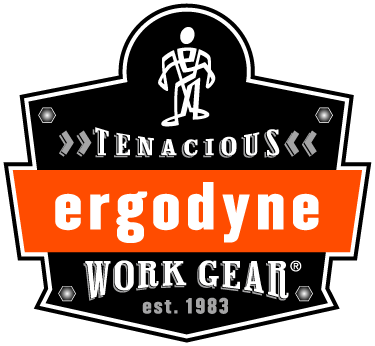Headlamps: Essential PPE in Dark, Confined and Restricted Working Spaces
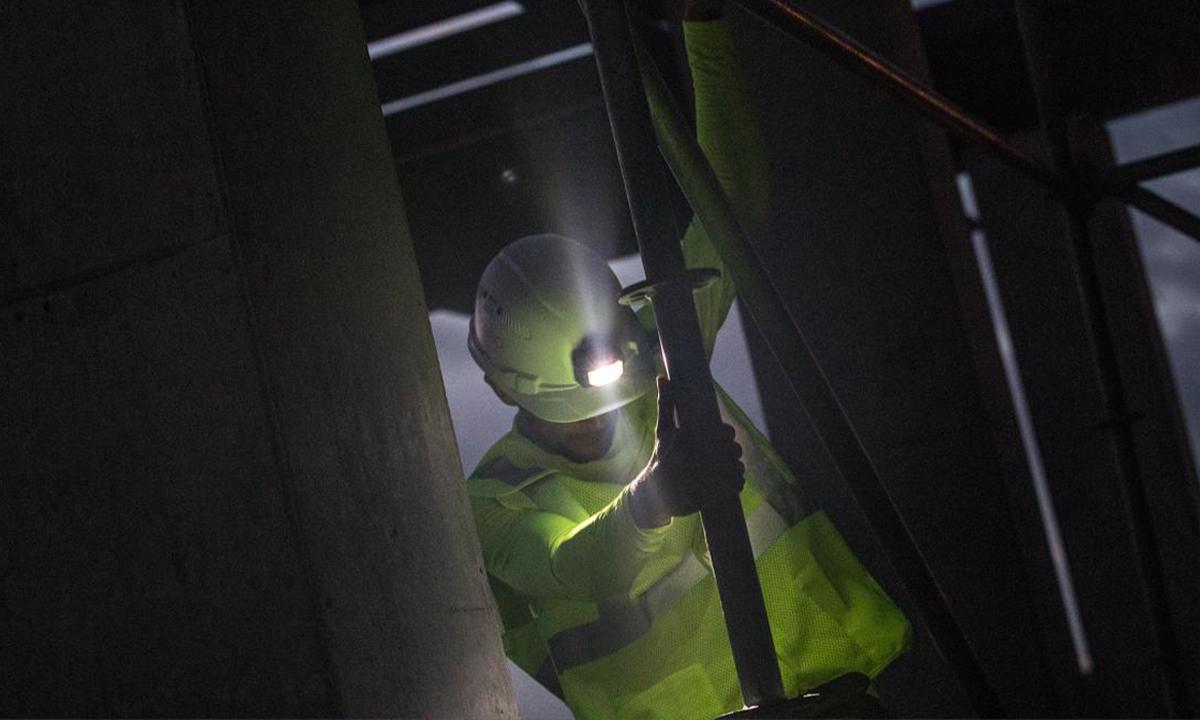
The practice of using hard hat lights on helmets rose up out of dark and dangerous mines over a century ago to become critical personal protective equipment (PPE) for many job sites—possibly like the one your crew is working on now.
So what do you need to know about headlamps for your workspace? Join us as we shed light on the critical questions and take a step towards a brighter, safer future…
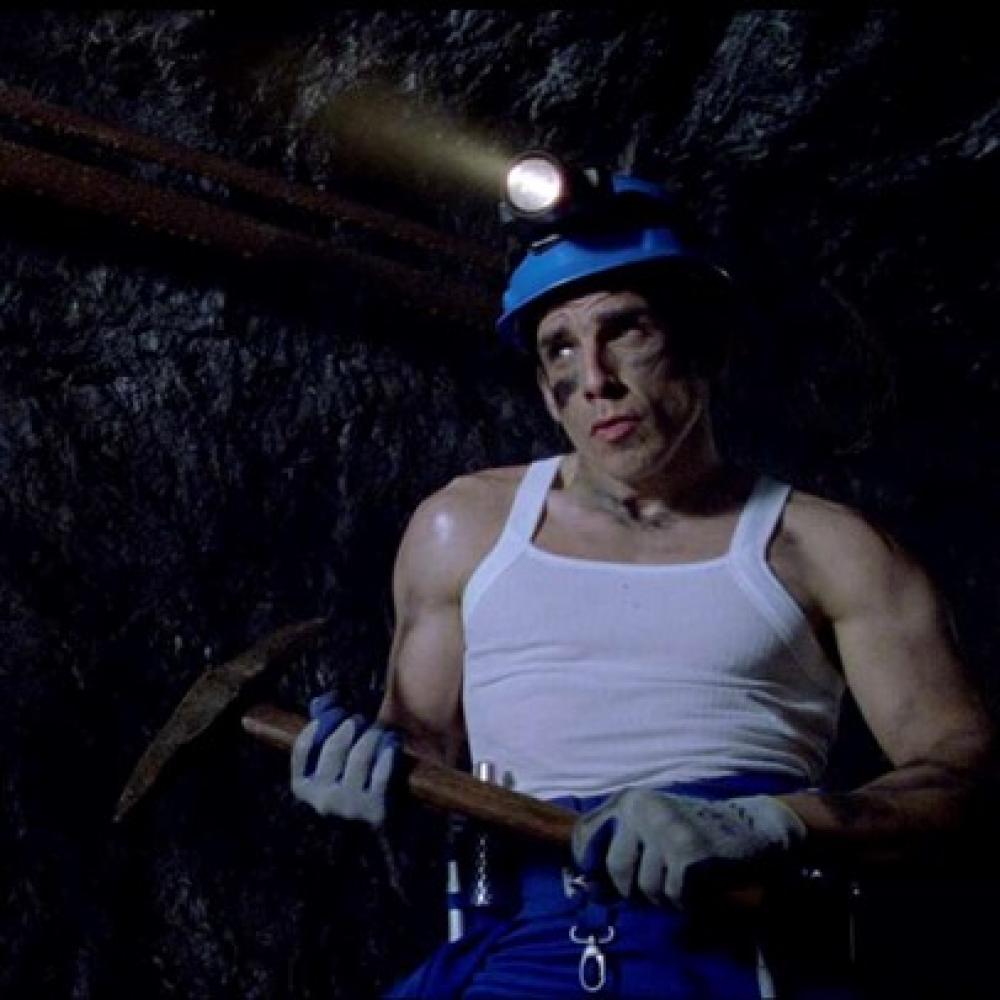
WHO SHOULD WEAR A HEADLAMP?
From road construction and emergency response teams to utility job sites and forestry, the applications are vast. Here's a list of sectors where headlamps are proving to be an invaluable asset:
-
Road construction
-
Search & rescue and emergency response
-
Rigging
-
Mining
-
Oil and gas
-
Sewer and pipeline work
-
Utility job sites
-
Forestry
-
Facility electrical work
The fact is, seeing unsafe conditions at work is the first step toward solving them. Accurately processing what you see is critical for identifying hazards and preventing costly mistakes and injuries. And so… the hard hat headlamp is critical PPE across many industries.
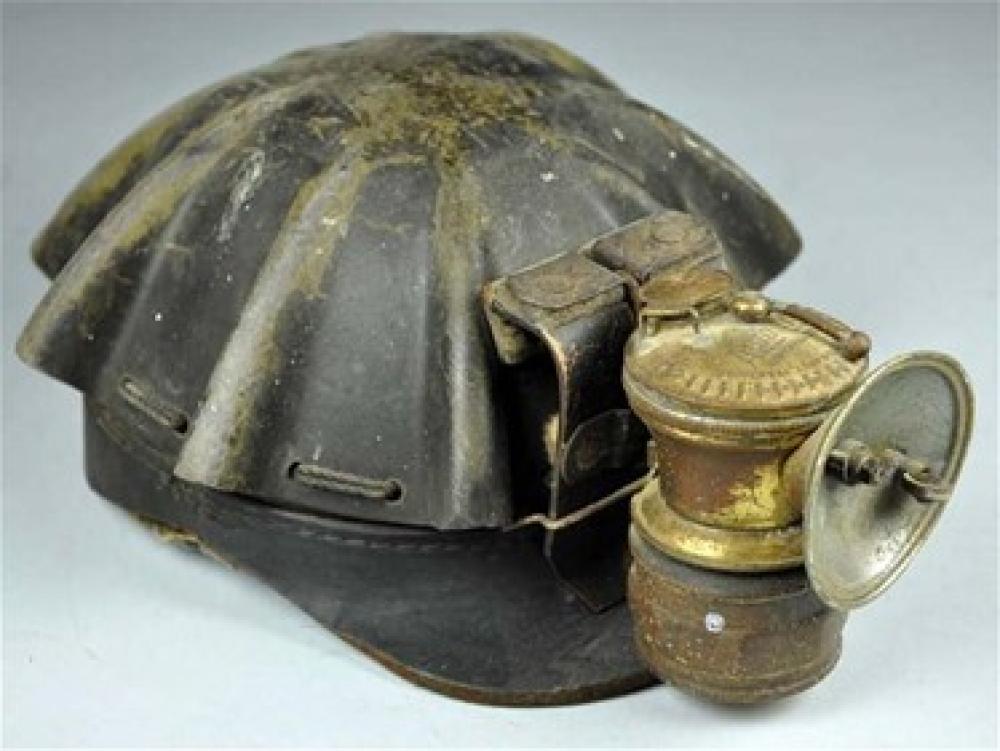
WHY WEAR HEADLAMPS AT WORK? ILLUMINATING THE ADVANTAGES
The tangible benefits go far beyond just lighting up a dark space. Here are a few specific safety advantages that headlamps bring to the table.
Preventing Trips and Falls
One of the most direct benefits of using headlamps is the drastic reduction in trips, slips, and falls—common culprits in workplace accidents. By providing adequate lighting in low-light conditions, headlamps allow workers to navigate uneven terrains or cluttered spaces safely, identifying potential obstacles and hazards that might be otherwise missed.
Enhanced Focus and Task Accuracy
Equipped with adjustable brightness settings, headlamps can be tailored to suit the task at hand, ensuring that workers have the optimal level of illumination. This not only helps in concentrating better on the task but also in achieving higher accuracy, thereby reducing the likelihood of mistakes that can lead to accidents.
Quicker Response Times in Emergencies
In emergencies, every second can be crucial. Headlamps, with their focused and directional lighting, can significantly aid in quicker response times. Whether it's navigating through a smoke-filled corridor or locating an injured person in a dark area, the immediate illumination provided by headlamps can potentially save lives by facilitating faster reactions and decisions.
Hands-Free Operation
The hands-free operation that headlamps offer is a significant safety boon. It allows workers to operate machinery or handle tools without the hindrance of holding a flashlight, reducing the chances of mishaps due to loss of control or imbalance. Moreover, the ability to work with both hands can often mean getting the job done more efficiently and safely.
Facilitating Better Communication
In job sites where communication is vital, headlamps can act as an enabler. The ability to signal or draw attention through the lighting can facilitate non-verbal communication, making coordination smoother and preventing misunderstandings that might lead to accidents.
REGULATORY INSIGHTS: OSHA'S GUIDELINES ON HEADLAMP SAFETY
OSHA’s standard for confined spaces in construction (1926.1201 - 1213), effective in 2015, greatly expanded the use of the construction headlamp. Many manholes, crawl spaces, tanks and other confined spaces of course are not rigged with fixed lighting, light bulbs or indeed any lighting. Maneuvering and working in these usually tight spaces require free use of the hands and bright and safe illumination provided by the hard hat headlamp.
Intrinsically Safe Headlamps
An additional hazard: many confined spaces and other areas of workplaces contain flammable gasses, vapors, liquids, materials, fibers and dusts that can easily ignite into fiery explosions. In these conditions, OSHA requires equipment, which would include the hard hat headlamp, to be intrinsically safe. By design, intrinsically safe products, including industrial headlamps, reduce the available energy to a level where it is too low to cause ignition. Intrinsically safe headlamps for hard hats are incapable of triggering combustion or igniting any gasses or fuels. These hard headlamps can be worn around gasses, fuels or dust without risking static electricity or heat discharge from the light igniting surrounding volatile gasses, powders and liquids.
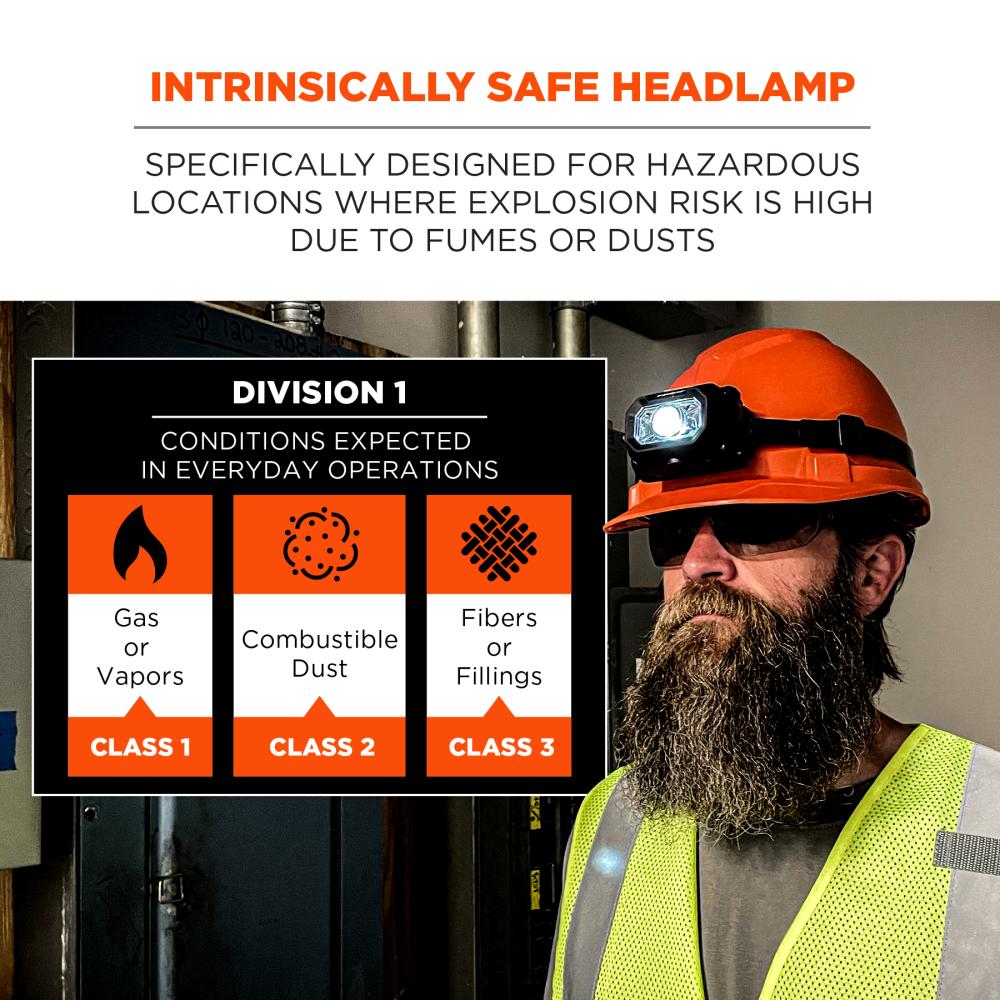
The Skullerz 8978 Intrinsically Safe Headlamp Light is an example of a headlamp designed for hazardous locations where the explosion risk due to fumes or fine dusts is high. The model 8978 easily attaches directly to any Skullerz Hard Hat and Safety Helmet light mount or Headlamp Mounting Straps.
CHOOSING WISELY: IMPORTANT QUESTIONS FOR SELECTING THE RIGHT HEADLAMP
Before selecting a headlamp, consider these questions for choosing the best option for your needs:
-
Where is the work being done?
-
Is head protection required?
-
Do workplaces contain flammable gasses, vapors, liquids, materials, fibers or dust? (See intrinsically safe headlamps above.)
-
-
What level of brightness (lumens) is required for your work environment?
-
Look for headlamps offering adjustable settings for brightness and focus, allowing users to tailor the light output to the task at hand
-
-
What is the ideal battery life for your work schedule?
-
A long battery life minimizes the hassle of frequent recharging or replacements, especially during extended work hours.
-
-
Does it comply with industry safety standards and regulations?
-
Headlamps should carry the proper certification for various classes, divisions and groups or materials in environments that are inherently volatile
-
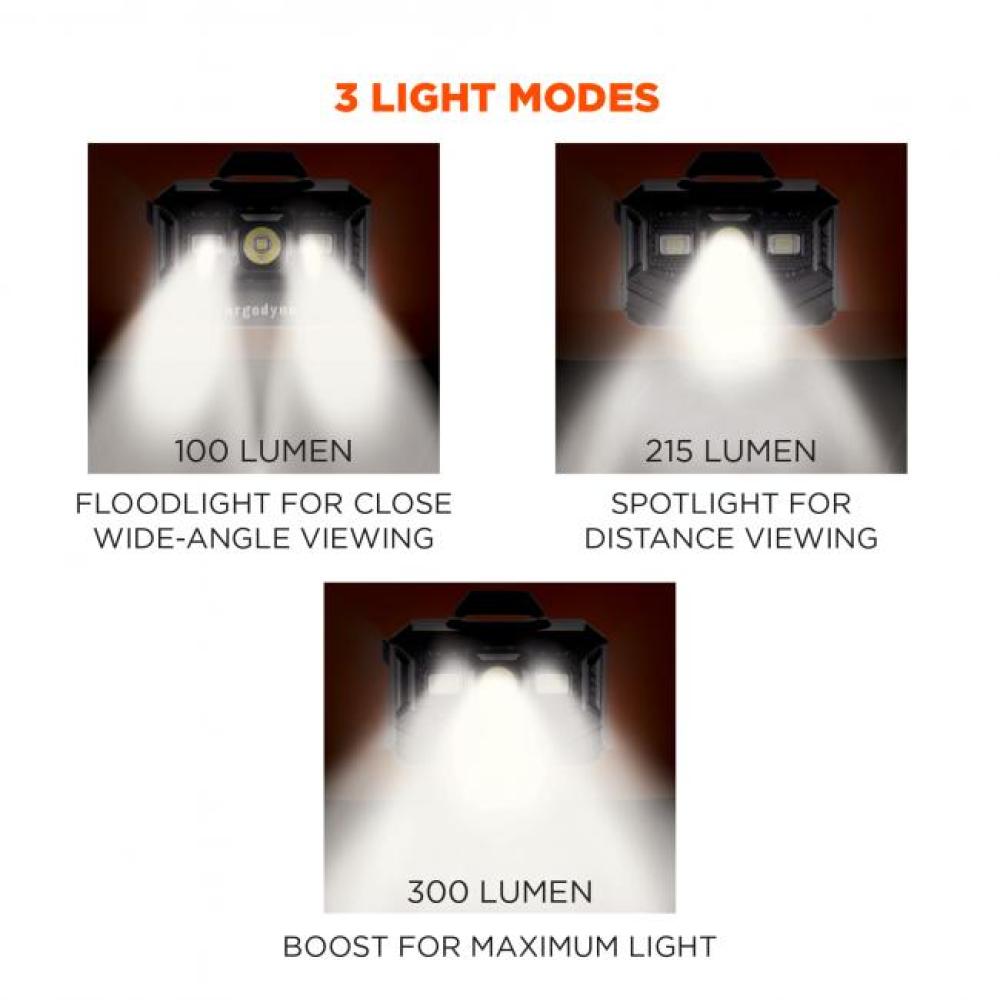
By considering all of the above, you can make an informed choice, ensuring your team members are equipped with a headlamp that meets the demands of their work environment.
DON’T FORGET THE ‘BRAKE LIGHT’: SAFETY BEACON LIGHTS
Focusing solely on front-facing headlamps can leave a crucial component in the dark: the beacon safety light. Affixed to the rear of the hard hat, this ‘brake light’ serves a pivotal role in creating a 360-degree radius of visibility, ensuring the wearer is conspicuous even in the most adverse lighting conditions.
As dusk descends or when work demands stretch into the night, beacon safety lights heighten visibility from long distances and potentially averting accidents. Their utility is not confined to the darkness alone; even in foggy or dusty conditions where visibility is limited, these lights can be the difference between being seen or unnoticed.
Just as brake lights on vehicles communicate a critical signal to others on the road, beacon safety lights act as a potent alerting mechanism on job sites. It sends a clear visual cue to others about the wearer’s position, helping to maintain a safe distance or navigate around them efficiently, especially in bustling or cramped work environments.
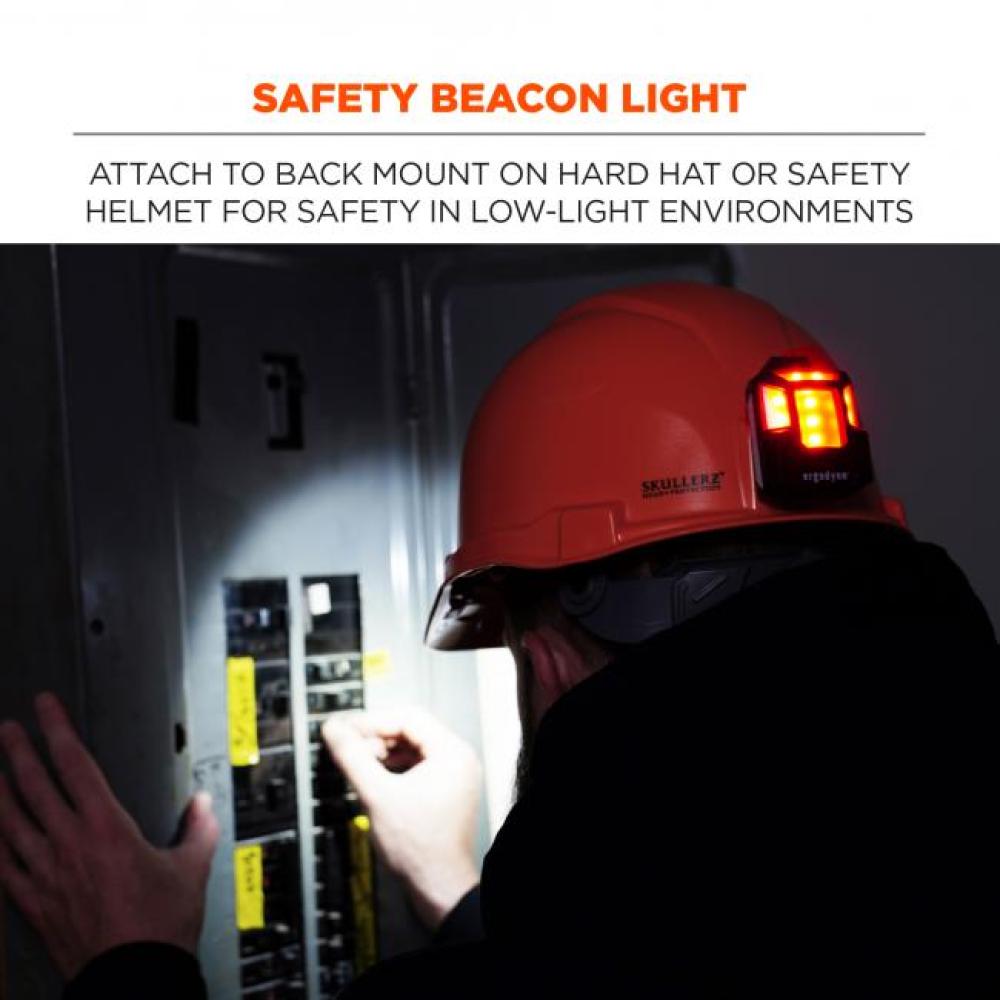
As you consider upgrading your team’s safety gear, think of the beacon safety lights as an essential addition to the hard hat. Much like the reflective stripes on a safety vest, these lights serve a simple yet vital function: to keep workers visible and safe in every light condition. When coupled with front-facing headlamps, they offer comprehensive protection, enveloping the worker in a cocoon of light that facilitates safer and more efficient operations.
SKULLERZ HARD HAT HEADLAMPS, LIGHTS + LIGHT MOUNTS
Skullerz Hard Hats and Safety Helmets include integrated built-in slots on the front and rear for use with Skullerz Headlamps and Safety Lights (Beacons). In situations where a hard hat or safety helmet does not have built-in slots or hard hats are not needed, Skullerz Headband Light Mounts provide what you need for hands-free lighting.
